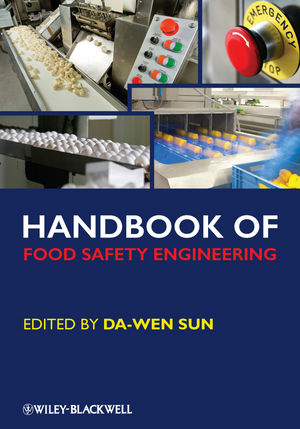New Food Safety Auditing Credentials

We’ve released two new credentials that are both aimed at building an international workforce of individuals who have been vetted and are qualified to meet food safety auditing requirements, such as those mandated by the Food Safety Modernization Act (FSMA).
These new credentials—Certified in Food Safety Supplier Audits (CFSSA) and Registered Food Safety Auditor (RFSA)—will meet needs throughout the international supply chain for a workforce of independent, guaranteed-capable food safety auditing professionals.
We worked for several years with subject matter experts (SMEs) from around the globe to develop these credentials. Building this capacity will help industry meet the new FSMA rules.
Developing the Credentials
Our credentialing department has many years of experience at creating and maintaining of credential programs, and now offers eight professional credentials, including the new CFSSA and RFSA.
Together with a team of professional psychometricians, numerous multi-day meetings were held—bringing together nearly 30 SMEs from government entities, regulatory agencies, industry, academia and other organizations to discuss what knowledge, skills, abilities and job tasks a future credential holder would need to be competent in the food safety auditing industry.
The psychometricians worked independently to ensure that the new credential exams, eligibility requirements, scoring, and continuing education requirements would be valid, reliable and legally defensible.
Throughout the development of the CFSSA credential, SMEs continually came back to a discussion of how important it would be to require that candidates have experience in third-party audits as an application requirement. The conundrum was how would CFSSA candidates be able to conduct a third-party audit without working for a certification body. There also was a need in the auditing world to build capacity of qualified professionals. This is how the need for a two-pronged credential was identified.
The CFSSA credential is designed for the food safety professional who will do in-house and second-party auditing, including supplier audits. The RFSA credential builds upon the knowledge necessary to obtain a CFSSA credential, by requiring RFSA candidates to conduct a certain number of audits in one food sector or category. RFSA candidates must also pass a witness audit checklist in one food sector or category. Patricia Wester, one of the SMEs involved in the credential development process, said, “A witness audit will confirm that a candidate has the necessary technical knowledge about how to produce a food product safely and knows how and where to gather information about what a facility should be doing.”
Eligibility
The CFSSA and RFSA credentials both require a high level of food safety knowledge.
To apply for a CFSSA credential, a candidate must hold a bachelor’s degree or equivalent, with 30 semester hours of core science education—or equivalent work experience, plus 3 years of experience in food production or in conducting regulatory food inspections at a supervisory or advanced capacity, evidence of accredited Hazard Analysis and Critical Control Point training and evidence of passing the Professional Food Safety Auditor Training Course or equivalent. A candidate that can provide proof of theses requirement is eligible to sit for the CFSSA exam.
Once a candidate passes the CFSSA exam, he or she is eligible to apply for the RFSA credential to become a third-party auditor.
Credential Exam and Continuing Education
Individuals who are eligible to sit for the CFSSA credential exam must achieve a passing score in a variety of the exam’s food safety auditing areas, including conducting an audit, conducting post-audit activities, verifying prerequisite programs, planning food safety audits and verifying food safety programs. The exam has 175 multiple-choice questions and candidates have 3 hours to complete it.
Upon successfully passing the exam, the CFSSA credential holder will be prepared to complete first- and second-party audits.
To maintain the CFSSA, credential holders must submit 24 hours of continuing education units a year. The RFSA credential requires 36 hours of continuing education (which can be applied to the CFSSA requirements) and active audit work with an accredited food safety credentialing body.
Creating a Competent Auditor Workforce
With the assistance of SMEs from around the globe, we were able to develop and launch two credentials that are perhaps the most robust of all food auditing credentials currently available. Ultimately, he said, the goal of these credentials is to sustain a workforce of competent, qualified individuals that are able to carry out the auditor functions described in FSMA. Additionally, qualified individuals are needed to audit the effectiveness of internal food safety programs and supplier programs, and to act as external third-party observers.
Find out more about the CFSSA and RFSA credentials at www.neha.org/credentials.
The National Environmental Health Association currently serves 5,000 members to advance the environmental health and protection professional for the purpose of providing a healthful environment for all.
Looking for a reprint of this article?
From high-res PDFs to custom plaques, order your copy today!









